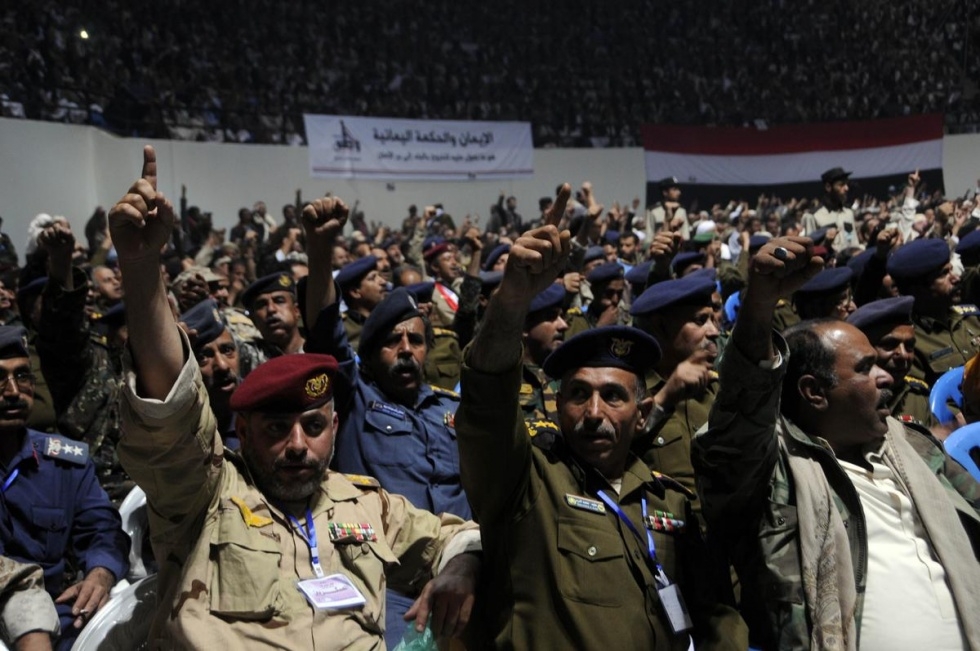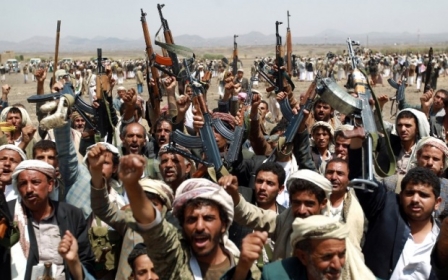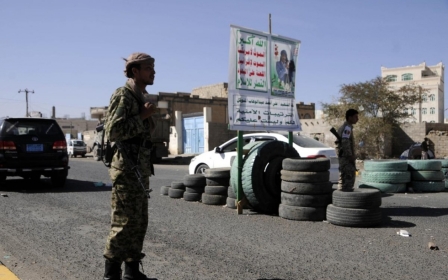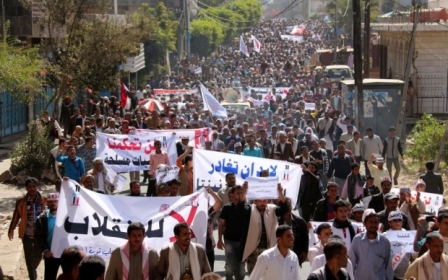Houthis give Yemeni political factions ultimatum

Yemen's Houthi movement on Sunday gave the country's political factions three days to reach a political settlement over the crisis in Yemen.
The ultimatum came in a statement released after a Houthi-led, three-day conference in Sanaa - attended by former president Ali Abdullah Saleh's General People's Congress but reportedly boycotted by all other political parties - to discuss resolutions for the country's political crisis.
Saleh, who was toppled after a popular uprising in 2011 and has sought to destabilise his successor’s presidency, is believed to back the Houthis.
If other political factions do not reach a settlement with the Houthis within the allotted time, the statement said it would move to resolve the political crisis, but it did not go into specifics.
The group, which has been controlling the Yemeni capital Sanaa since last September, called for removing articles in the Yemeni constitution that contradicted a peace and partnership agreement signed by Yemen's political forces, on one hand, and the presidency, on the other, late in 2014.
Over the weekend, anti-Houthi protests in the capital and around the country erupted. In Sanaa, Houthis reportedly arrested an unknown number of demonstrators at the tail end of a week that saw 25 Yemeni journalists attacked in the capital, mostly by Houthis, according to Yemeni NGO Freedom Foundation, which campaigns for media freedoms, rights and development.
As the Houthi-led conference went on, several Yemeni political parties met with UN special envoy Jamal Benomar to discuss the future of the country following the resignation of President Abd Rabbuh Mansour Hadi and his government earlier this month.
Hadi’s resignation, within the same hour as his prime minister and cabinet, left a power vacuum in the country. Immediately after Hadi quit, Yemen’s parliamentary speaker said an emergency session would be held to discuss the resignation.
Twice cancelled, the meeting has not yet been held. This weekend, Hadi told the Associated Press that he will not reconsider his resignation, despite pressure from Houthis, who he says are holding him under house arrest at gunpoint.
Even at the conference from which the ultimatum was issued, there still seemed to be Houthi interest in Hadi leading the country.
Yihya al-Houthi, a senior Houthi leader at the conference, told BBC: “The government and the president should act as a transitional authority until a new president is elected or until a presidential council is formed.”
A source close to the Yemeni presidency, speaking to Asharq Al-Awsat on the condition of anonymity, said: “From my understanding, if the UN-brokered summit emerges with something that goes against the decisions made at the Houthi summit, then they [Houthis] will impose their decisions and say that this is the will of the people.”
Military officials, also speaking to Asharq Al-Awsat on condition of anonymity, claimed that the Shiite militant group, which has traditionally set up “popular committees” as a prelude to strengthening its grip on Yemen’s provinces, is also seeking to gain control of the southern province of Aden.
New MEE newsletter: Jerusalem Dispatch
Sign up to get the latest insights and analysis on Israel-Palestine, alongside Turkey Unpacked and other MEE newsletters
Middle East Eye delivers independent and unrivalled coverage and analysis of the Middle East, North Africa and beyond. To learn more about republishing this content and the associated fees, please fill out this form. More about MEE can be found here.




